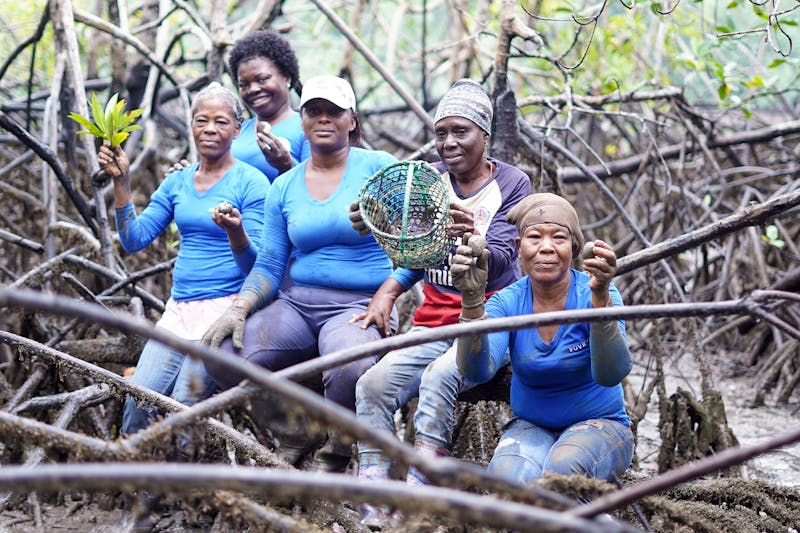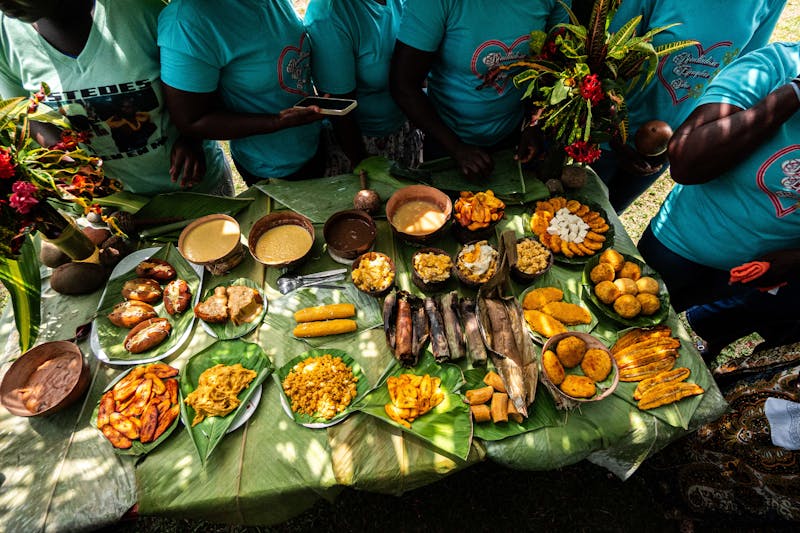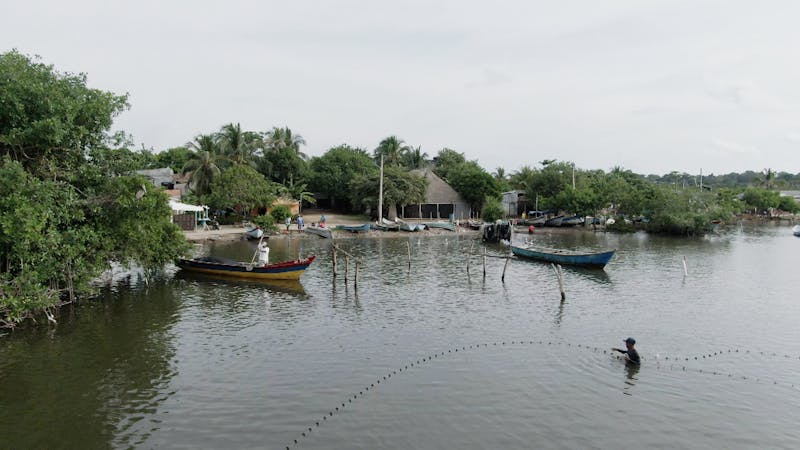Their forebears were strangers in a strange land.
Yet over hundreds of years, in the shadows of their ancestors, they migrated and mixed into societies across South America, quietly reshaping the natural landscape.
They are the descendants of African enslaved people — and the significance of their impacts on lands throughout South America is coming into the light, thanks to new research.
Afro-descendant communities in four Amazonian countries show remarkable achievements in protecting and managing the natural environments they live in, according to research from Conservation International.
The researchers examined community lands in Brazil, Colombia, Ecuador and Suriname, finding significantly lower rates of deforestation and larger quantities of biodiversity and of carbon (which would be emitted into the atmosphere and warm the climate were those forests to be degraded or destroyed).
The study, published today in the journal Nature Communications Earth and Environment, found that deforestation rates for Afro-descendant lands were up to 55 percent lower compared with similar areas. Additionally, the study calculated that more than half of Afro-descendant lands are among the top 5 percent globally in biodiversity, including 99 percent of all Afro-descendant lands in Ecuador.
This research is the first study to examine statistical, spatial and historical data together to quantify the critical role of Afro-descendants in protecting nature.
“Afro-descendant communities across the Americas have long served as environmental stewards without recognition or reward — most of their territories are not even formally recognized,” said Conservation International’s Martha Cecilia Rosero Peña, a co-author of the study. “The evidence, however, is indisputable; the world has much to learn from their land management practices."

An Afro-descendant community in Ecuador. Research shows Afro-descendant communities have significantly lower rates of deforestation.
Though Indigenous Peoples have been increasingly recognized in recent years as conservation champions, such recognition for Afro-descendant peoples has been minimal. This is changing, though: At the UN Biodiversity Summit in 2024, Afro-descendants were recognized as important to biodiversity conservation in the convention text.
“Though evidence on Afro-descendant peoples’ environmental stewardship is emerging, it is still limited,” said Sushma Shrestha, the study’s lead author and the director of Indigenous science at Conservation International.
“So we did this research to help fill that gap.”
Food — and a place to hide
Afro-descendant peoples trace their practices to the ingenuity and experience of their ancestors, forcibly taken from Africa through the transatlantic slave trade. Some escaped before being enslaved, while others fled slavery and established their own settlements in remote regions throughout the Americas. In dense forests, marshlands and mangroves, they found refuge and, over generations, developed "escape agriculture,” which sustained their communities while remaining hidden from colonial forces.

Members of an Afro-descendant community in Colombia harvest clams among the mangrove roots.
Further reading: Saving the mangroves to save the clams — and a way of life
Many of these practices blended traditional African knowledge to new environments. For example: Over thousands of years, Africa’s tropical forests had undergone a transformation into “food forests,” a form of agroforestry that both provides food for people and mimics the natural function of a forest ecosystem. The researchers write:
These time-tested African practices subsequently crossed the Atlantic Ocean with enslaved individuals, ultimately being adapted for the plants, animals and humans of the Americas. Upon their arrival, enslaved individuals … implemented management practices that replicated food forests, creating forest canopy structures that constituted functional reservoirs for dietary, medicinal, ritual and festive purposes.
The forests served another purpose: concealment.
In Suriname, descendants of African enslaved people are known as Maroons and are associated with the forest — not least because forests were a place where their fugitive ancestors could hide from slaveowners. These forests housed communities that, Rosero says, implemented methods of agriculture that preserved the forest as a means of protection from being caught. “It means they didn't burn the forest,” she said. “They had to use the canopy to hide. This is something that we can still see in many places in Latin America.

An Afro-descendant community in Ecuador displays foods derived from their forests.
‘Disconcerting’
In Latin America, 133 million people identify themselves as Afro-descendant peoples, occupying some 2 million square kilometers (791,000 square miles) of land.
Yet, the researchers say, they are largely missing from policy discussions that affect them.
“It is disconcerting that one in three people in Latin America identify as Afro-descended peoples, but they are not really part of the environmental decision-making that impacts, of course, them and their livelihoods and their lands,” Shrestha said. “But that also means that we are missing the opportunity to really partner with allies that would support combating climate change and biodiversity loss."

An Afro-descendant community in Cispatá, Colombia, along the Caribbean coast.
The authors call for greater recognition of Afro-descendant stewardship in environmental policymaking and increased legal protections for their lands. With international goals aiming for the protection of 30 percent of the world's land by 2030, integrating Afro-descendant knowledge and leadership into global strategies may well be the key to meeting the target.
The research is already being lauded by some Afro-descendant peoples as a confirmation of what they’ve long known.
“This study is very important to us Saamaka people, as it highlights for the first time how, through our deep cultural and spiritual connection to the land, we have sustained vital forest areas,” said Hugo Jabini, a human rights and environmental leader from Suriname’s Saamaka Afro-descendant community. “We hope this raises awareness, so that [political leaders] no longer see us as mere claimants of land.”
Further reading:
- Saving the mangroves to save the clams — and a way of life
- In Colombia, a new way to protect mangroves takes root
Bruno Vander Velde is the managing director of storytelling at Conservation International. Want to read more stories like this? Sign up for email updates. Also, please consider supporting our critical work.